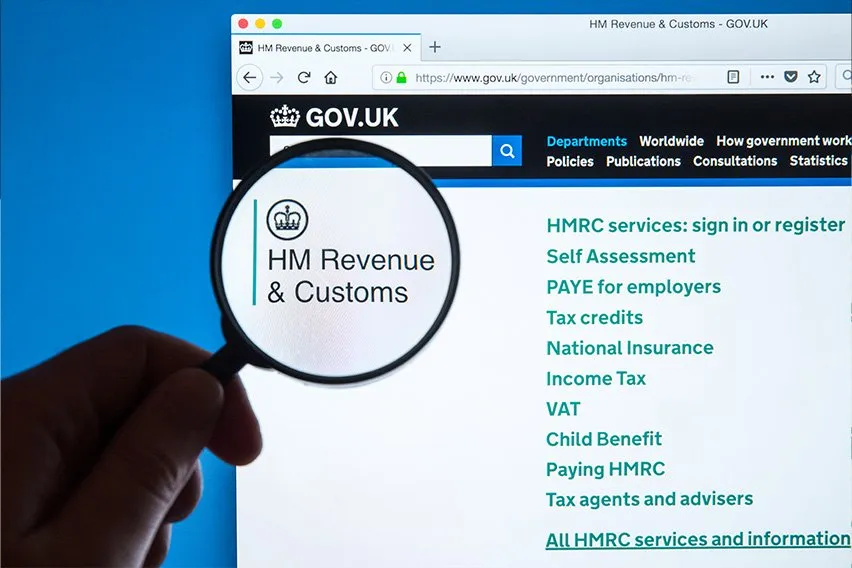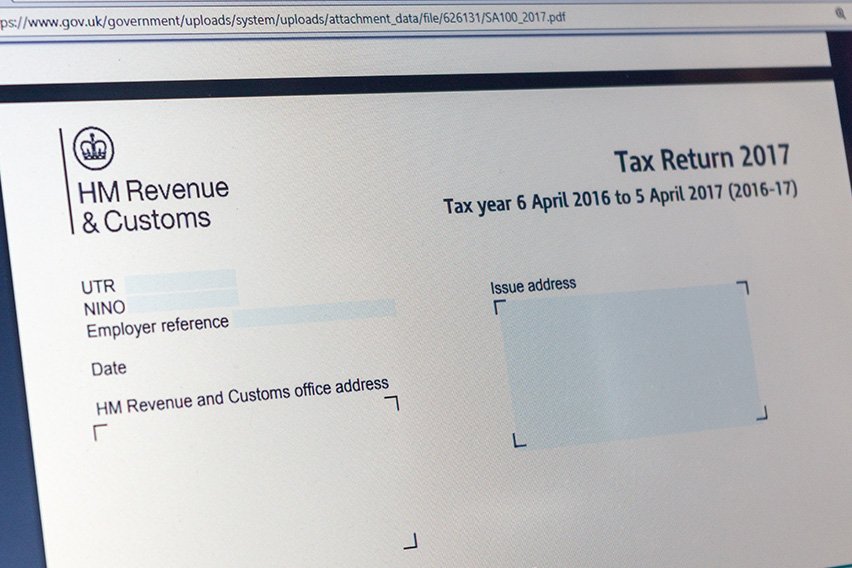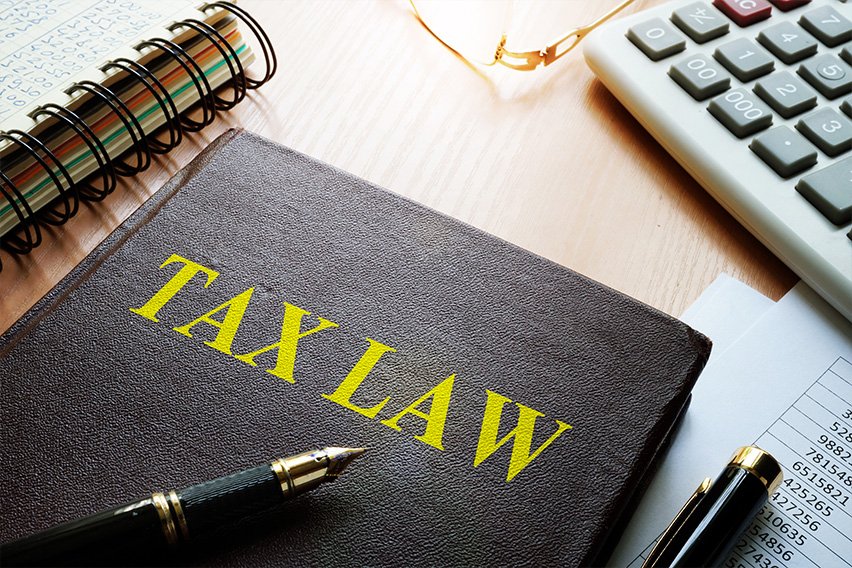HMRC Tax Refund: Does HMRC Automatically Refund Overpaid Tax?

Whether you’re an employee, self-employed, or own a company, it’s possible for any taxpayer to overpay tax to HM Revenue and Customs (HMRC). HMRC aims to make sure everyone pays their taxes, and it doesn’t want people paying too little. But it also doesn’t want anyone paying too much as a result of a poor tax calculation.
That’s why there are procedures in place for it to refund tax overpayments. It’s not always an automatic process, and sometimes you have to submit an application within the given overpaid tax refund criteria and deadline.
Here’s What We’ll Cover In Our Guide To Tax That Is Overpaid:
- You Might Be Due to Get a Tax Refund From HMRC
- Tax Calculation: How Do I Know I’m Paying the Right Amount of Tax From the UK Gov?
- Does HMRC Refund Overpaid Tax?
- Claim a Refund: Do You Get an Automatic Refund for Overpaid Tax?
- How Do I Claim Tax Back If I Have Overpaid and It Isn’t Refunded?
- What Information Do I Need to Reclaim My Tax Through Self-Assessment?
- What’s the Deadline for Filing a Self-assessment Tax Return?
- Are There Any Penalties for Missing Self-Assessment Deadlines?
- What Is the Time Limit for Reclaiming Overpayment of Tax?
- How Quickly Does HMRC Repay Overpaid Tax?
You Might Be Due to Get a Tax Refund From HMRC
If you overpaid your tax you might be in for a tax refund from HMRC. Situations might include:
- Self-assessment tax returns, particularly concerning your Payments on Account. If your actual takings are less than the predicted Payment on Account amount, and you paid it without any reduction, then you likely paid too much tax.
- You were on an emergency tax code when you started a new job.
- You have more than one job and you lose some of your personal allowance entitlement because the second job applies Basic Rate tax to your entire salary.
- Pay as you earn (PAYE) is connected to an incorrect tax code issued by HMRC, or your employer applies the wrong one.
- Work expenses tax reliefs and allowances.
- You are in the construction industry scheme (CIS).

There are other tax calculation circumstances that apply to individuals which may lead to an overpaid return—such as having more than one pension, leaving the country without using up your whole personal allowance, and redundancy payments to the UK gov. These are all reasons you might want to make a overpaid tax claim.
Tax Calculation: How Do I Know I’m Paying the Right Amount of Tax From the UK Gov?
No one wants to say “I paid too much tax,” so try this as a tax calculation exercise. List everything you pay tax on. Then dig into how much that should be, how all the elements of your financial life interlink, and if your calculations match HMRC’s. Add up all your taxable income and apply the right tax band to each portion of your earnings. Don’t forget to deduct your personal allowance, and check your tax code.
The other, more popular side of the UK tax system is the work expenses tax reliefs and allowances. All UK taxpayers are equally entitled to claim tax relief on things they have to buy for work and their business. For employees, lots of industry professional bodies have negotiated an easy to administer ‘flat rate’ for their members. And self-employed taxpayers may claim for things like mileage and business expenses, both of which FreshBooks tracks for you as you go about your workday.
Remember it’s your job to make sure you’re paying the right amount of tax to the UK gov over the years, not HMRC’s. And you don’t want to miss out on getting your money back from paying too much tax!
Does HMRC Refund Overpaid Tax?
Yes, HMRC does refund overpaid tax, sometimes automatically and sometimes through the refund application process. It’s important to keep on top of your tax position because there are time limits on when you may make a claim for overpaid tax and apply for your tax rebate.
Claim a Refund: Do You Get an Automatic Refund for Overpaid Tax?
If you’re due to get a refund after you overpay tax you might wonder how to claim it. At the end of each tax year, HMRC must balance its books by reconciling every PAYE taxpayer’s position. They look at information from your employer, telling them how much you’ve earned, the value of any benefits-in-kind, and how much income tax you’ve paid.
You will receive a P800 tax notice, which tells you the result of this calculation. If HMRC finds that you’ve paid too much income tax, you will get a tax refund, typically paid back to you in your next wage packet.
Other things, like work expenses and business allowances, are never refunded automatically. Quite simply, if you don’t claim them, you don’t get your tax overpayment back. So in short, make a overpaid tax claim for everything you legally can.
How Do I Claim Tax Back If I Have Overpaid and It Isn’t Refunded?
You need to use the tax calculation self assessment system, which is quite different from the PAYE tax system.
Getting Set up in Self-Assessment
There are different pathways to setting up in self-assessment depending on whether you’re self-employed, a sole trader, in a partnership, or not self-employed.
Everyone needs a 10-digit unique taxpayer reference (UTR) number, which you will get in a letter from HMRC when you first register online. You use this to set up your self assessment online account, through your Government Gateway account.
To provide an extra layer of security, HMRC will then post you an activation code within seven working days. You need to use this code when you sign in to your account for the first time, and you’re good to go!
What Information Do I Need to Reclaim My Tax Through Self-Assessment?
The easiest way to tackle tax paperwork like this is to gather all the income and other information you need from the tax year in question. Most of it is already there, right in your system, your FreshBooks account.
You need:
- National Insurance number
- Income, including self-employed earnings, dividends, and shares interest
- Documents showing income you’ve already paid tax on, like P60
- Tax relief on Pension contributions and charitable donations
- Self-employed work expenses
You’ve also got all important income and business payments records stored and organised for you with FreshBooks. Your automatic mileage tracker and photos of receipts have your expenses covered. And you can easily find any relevant purchases with the automatic bank reconciliation feature.
What’s the Deadline for Filing a Self-assessment Tax Return?
You must file your self-assessment tax return by midnight 31st January in the year following the tax year in question. For example, for the 2024-25 tax year, the deadline is 31st January 2026. This is also the deadline to pay that year’s tax bill in full.
You don’t have to wait until the deadline to file your tax return. As soon as the tax year ends, you can get it over and done with.
Some people find this juggling of past and present tax years a bit tricky at first. But remember that you don’t have to keep it all in your head. As long as you’ve put all your relevant information into your FreshBooks account, you can check whatever you need in a couple of clicks.
Are There Any Penalties for Missing Self-Assessment Deadlines?
Yes, HMRC has a range of cumulative fines which may add up to a substantial amount. These are for missing the self assessment tax return filing date and the deadline for paying your tax bill.
Late Filing
These fines apply, even if you don’t owe HMRC any tax. Where there is an either/or option, HMRC applies whichever is the largest amount.
- 1 day late: Automatic £100 fine
- 3 months late: £10 per day, up to £900 maximum
- 6 months late: 5% tax owed or £300, whichever is higher
- 12 months late: 5% of the tax bill or £300, whichever is higher
Late Payment
- 30 days late: 5% tax owed
- 6 months late: 5% outstanding tax to that date
- 12 months late: 5% outstanding tax to that date
There are additional penalties for taxpayers who directly withhold information for 12 months or longer:
- If they deliberately conceal information, the penalty is 100% of the owed tax, or at least £300, whichever is more.
- If they deliberately withhold it but don’t conceal it, the penalty is 70% of the owed tax, or at least £300, whichever is more.
- Penalties can sometimes be reduced if the taxpayer admits the mistake, cooperates, or willingly provides information to HMRC.
Thank goodness you’ll never have to lose your hard-earned money this way, with FreshBooks’ automatic deadline reminders to keep you right.

What Is the Time Limit for Reclaiming Overpayment of Tax?
The UK tax year runs from the 6th April, to the following 5th April. You can backdate a tax rebate claim for four tax years.
For example, this tax year is April 6th 2024 to April 5th 2025. But you can claim overpaid tax as far back as the 2020-21 tax year. This 2020-21 year tax rebate is lost on April 5th 2025, so don’t hang about with that claim.
How Quickly Does HMRC Repay Overpaid Tax?
Self-Assessment
HMRC usually processes tax rebate claims for overpaid returns within 12 weeks. Your cheque will then take about two weeks to arrive. At busier times of the year, like the self assessment tax return deadline on 31st January, the wait maybe longer.
P800
If you are told you’re due a tax refund in your P800, the time frames are different depending on how you’re going to receive the money.
- Online claim: HMRC will send the money in five days and you’ll be able to access it once it’s processed by your bank.
- Cheque: HMRC is sending you a cheque, which will be with you within 14 days from the date on your P800. This is one cheque for the total amount you are owed, even if that is over more than one year.
HMRC will eventually send you a cheque if you don’t make your online claim within 45 days of receipt of your P800. This will be with you by 60 days from the P800 date.
More Useful Resources
- How To Contact HMRC About Tax Code
- How Does HMRC Know About Undeclared Income?
- HMRC Travel Expenses Guidelines
RELATED ARTICLES

 So, How Far Back Can HMRC Investigate Your Tax Returns?
So, How Far Back Can HMRC Investigate Your Tax Returns? Inside IR35 – What Does Inside IR35 Mean?
Inside IR35 – What Does Inside IR35 Mean? How Much to Charge for House Cleaning in the United Kingdom
How Much to Charge for House Cleaning in the United Kingdom How to Estimate Painting Jobs in 7 Easy Steps
How to Estimate Painting Jobs in 7 Easy Steps